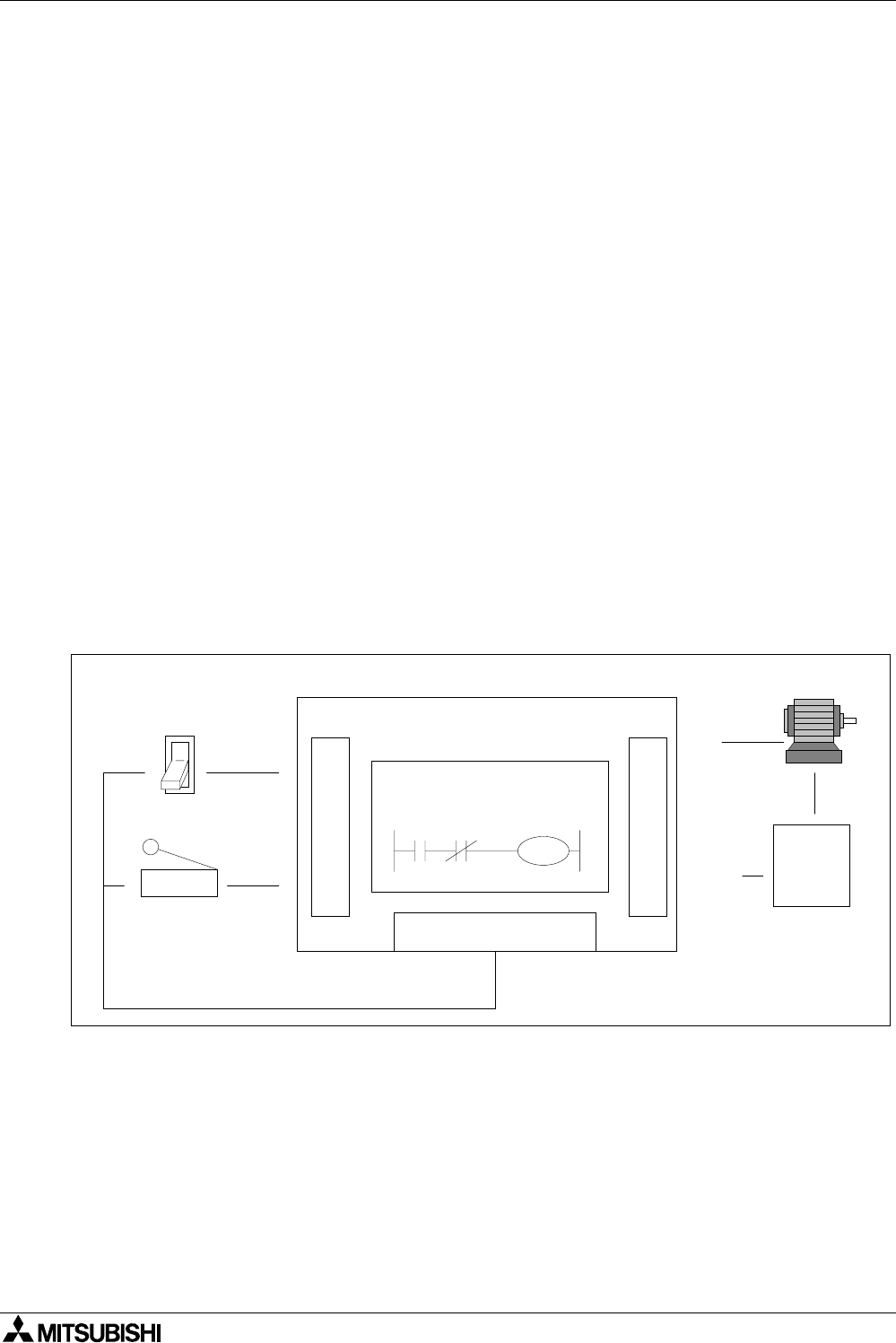
FX Series Programmable Controllers Basic Program Instructions 2
2-2
2.3 How to Read Ladder Logic
Ladder logic is very closely associated to basic relay logic. There are both contacts and coils
that can be loaded and driven in different configurations. However, the basic principle remains
the same.
A coil drives direct outputs of the PLC (ex. a Y device) or drives internal timers, counters or
flags (ex. T, C, M and S devices). Each coil has associated contacts. These contacts are
available in both “normally open” (NO) and “normally closed” (NC) configurations.
The term “normal(ly)” refers to the status of the contacts when the coil is not energized. Using
a relay analogy, when the coil is OFF, a NO contact would have no current flow, that is, a load
being supplied through a NO contact would not operate. However, a NC contact would allow
current to flow, hence the connected load would be active.
Activating the coil reverses the contact status, that is, the current would flow in a NO contact
and a NC contact would inhibit the flow.
Physical inputs to the PLC (X devices) have no programmable coil. These devices may only be
used in a contact format (NO and NC types are available).
Example:
Because of the close relay association, ladder logic programs can be read as current flowing
from the left vertical line to the right vertical line. This current must pass through a series of
contact representations such as X0 and X1 in order to switch the output coil Y0 ON. Therefore,
in the example shown, switching X0 ON causes the output Y0 to also switch ON. If however,
the limit switch X1 is activates, the output Y0 turns OFF. This is because the connection
between the left and the right vertical lines breaks so there is no current flow.
X0 X1
Y0
PC Program
I
N
P
U
T
O
U
T
P
U
T
Programmable Controller
DC Power Supply
X0
X1
Y0
AC
Power
Supply
COM
(Y0)
Toggle switch
Limit switch
Motor


















